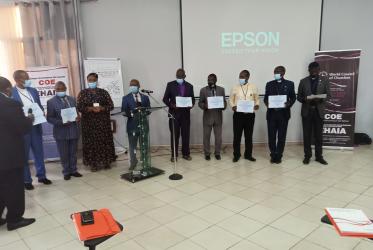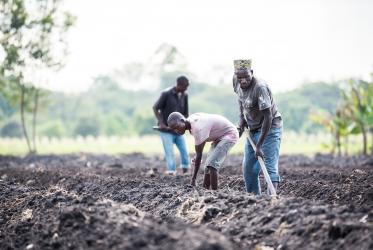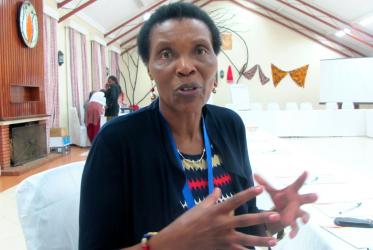Displaying 1 - 18 of 18
Workshop on HIV stigma, treatment adherence opens in Tanzania
29 September 2021
WCC mourns passing of Hendrew Lusey-Gekawaku
23 October 2020
Moravian Church in Tanzania launches Thursdays in Black
10 September 2019
Dr Cecile De Sweemer, the doer of God
30 November 2018
Congolese churches respond to Ebola outbreak
01 June 2018











